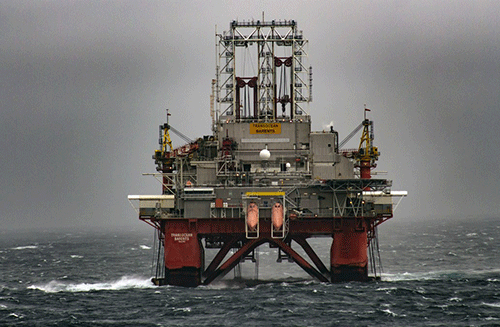The Jonker oil discovery, run by Shell Plc in the productive block in the Orange Basin, offshore Namibia, is believed to be the major contributor to discovered volumes in Africa during 2023.
According to the African Energy Chamber (AEC), the Jonker discovery represents 57% of total volumes discovered on the continent so far in 2023.
This is according to estimates of Jonker’s recoverable reserves, which total roughly 285 million barrels.
“Jonker resulted in one of the biggest oil discoveries in Africa for the year so far and further cemented offshore Namibia as an exploration hub. On the eastern side of the continent, Invictus Energy drilled the much-anticipated Mukuyu-1 wildcat in Zimbabwe, and the well resulted in close to 60 MMboe of natural gas. HIW–Osprey is expected to be drilled soon on Cooper license, offshore Namibia, operated by Eco Atlantic Oil & Gas,” stated AEC in its second quarter publication.
AEC is an energy advocacy group, founded in 2028 by NJ Ayuk.
The South African-based group focuses on legal issues relating to oil and gas in Africa and aims to improve the African energy landscape to explore the continent’s full potential. AEC noted that the Jonker well is the only significant offshore discovery with all the other 2023 discoveries in Africa being onshore.
The chamber added that Algeria saw a string of small finds, with the total volume accounting for 20% of the overall discovered volumes.
Zimbabwe also saw a discovery, with the Mukuyi-1 well drilled in the frontier area, resulting in a 65 million barrels of oil equivalent discovery (90% gas).
Meanwhile, petroleum commissioner in the mines and energy ministry Maggy Shino this month said the determination on whether Namibian oil discoveries recorded in the Orange basin are commercially viable will only be known in the next eight to 12 months.
“Work is still ongoing. Shell and TotalEnergy are now mapping the extent of the field to see if the oil will flow to the surface at a level that is commercially viable,” said Shino while addressing a Parliamentary Standing Committee on Natural Resources’ information session at that time.
Shino added that the issue with Namibian discoveries is the depth of where the oil is located: “We need infrastructure that is built fit-for-purpose. We will need to incorporate floating production facilities, and they require investment in the range of about US$15 billion to US$20 billion before production”.
The petroleum commissioner added that there is a need for Namibia to attract these investments, but cautioned that there are pitfalls that the country still needs to tackle. – mndjavera@nepc.com.na


